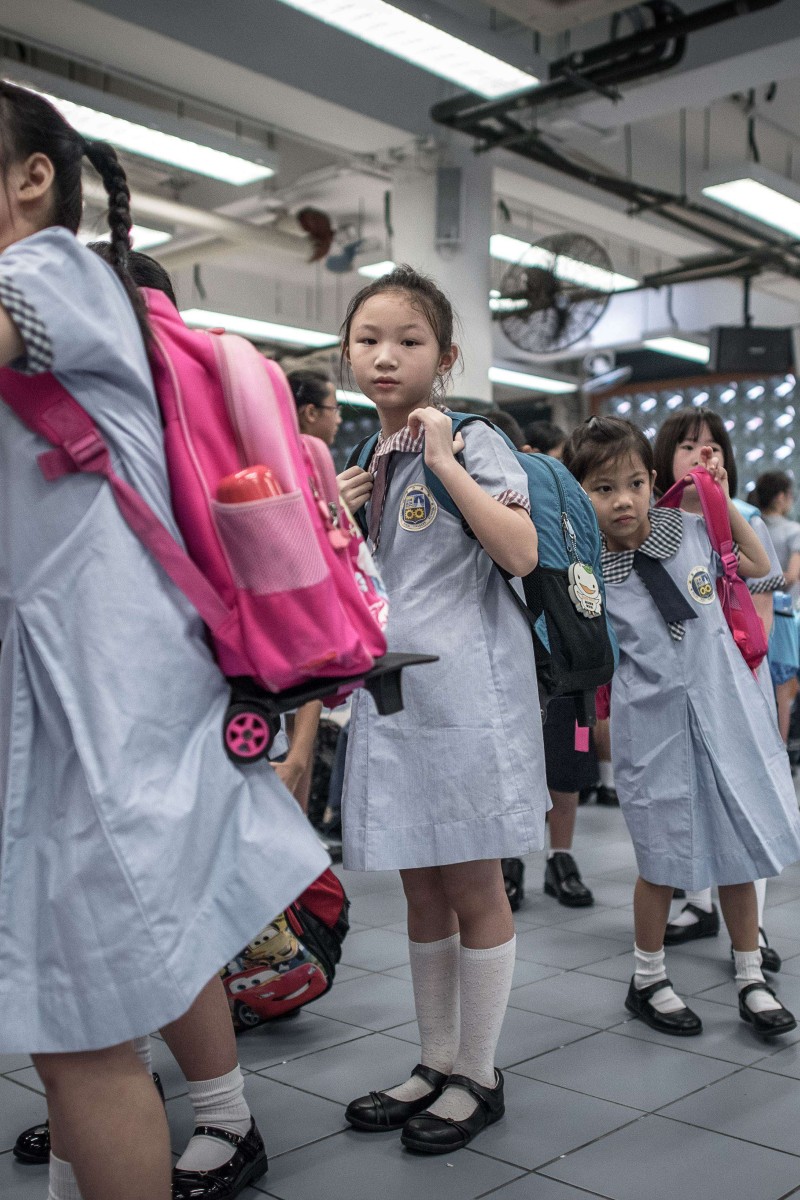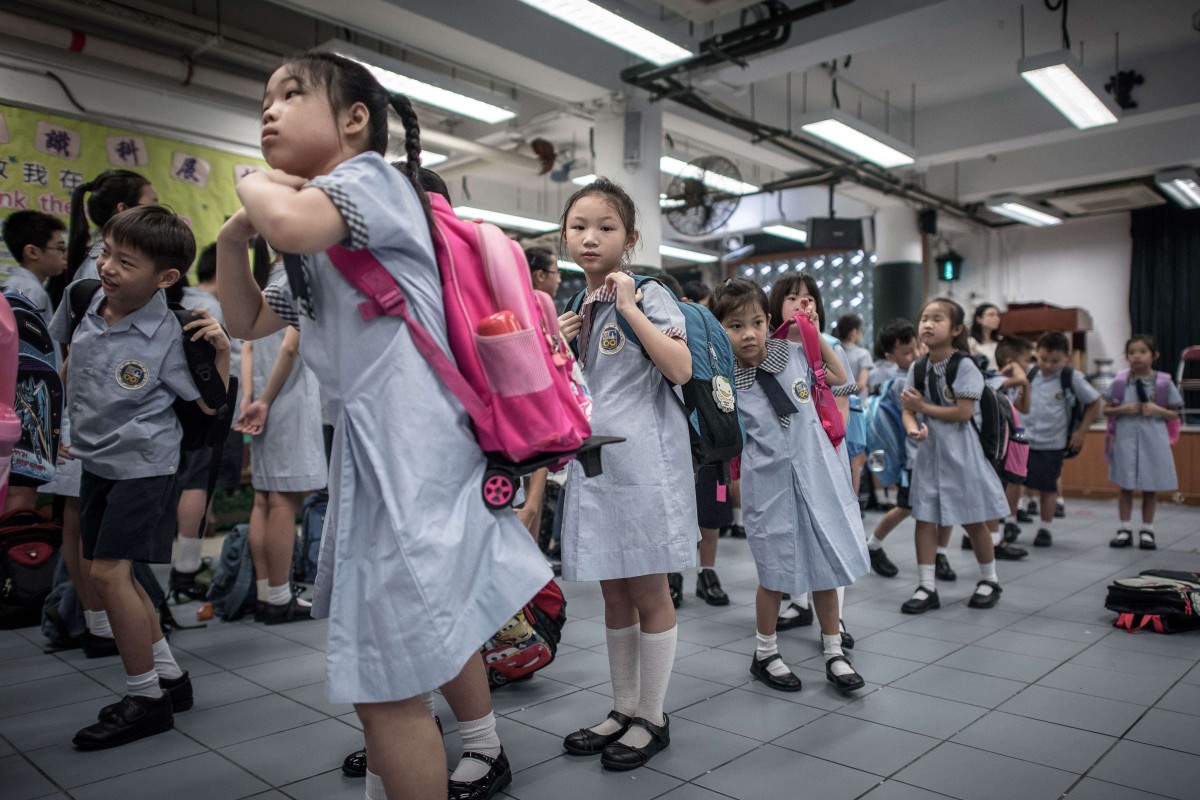
A survey released on Children’s Day found children are a lot less happy than they were eight years ago
 Hong Kong students ranked being outside as important to them.
Hong Kong students ranked being outside as important to them.Hong Kong students are a lot less happy than they were eight years ago, a survey released yesterday in honour of Children’s Day found. More than one out of every 10 children said they felt unhappy, a five-fold increase compared to 2008.
The Boys’ & Girls’ Clubs Association of Hong Kong interviewed 1,055 students aged six to 17 earlier this year, and only 57.1 per cent of them said they felt happy, a huge drop compared to 73.8 per cent in 2008. For those aged older than 12, only about 40 per cent of them reported feeling happy. According to the participants, being happy means getting good grades, not feeling pressure and being able to do what they like. They list playing with friends, being outside and spending time on smartphones as the top three things that they like to do.
Another survey conducted by the Caritas Youth and Community Service found that more than a third of 1,838 primary school students surveyed sleep for six to seven hours on average on a school day. 37.5 per cent of students have an average of seven to eight pieces of homework per day.
Dr Fanny Lam Wai-fan, a paediatrics specialist, said those aged five to 12 need 10 to 11 hours of sleep every day, and those aged 12 to 18 need 8.5 to 9.5 hours.
Kelvin Chu, a Form Five student at Po Leung Kuk Laws Foundation College, says he gets an average of seven hours of sleep per day. “I never get enough sleep,” he says. “There are too many things going on for school – organising club activities, quizzes and tests presentations ... they really stress me out. My school takes a beyond-pushy approach to boost our results.”
Lam says many parents have a misunderstanding that sleep time could be cut for studying or extracurricular activities. But sleep is vital to consolidating knowledge learnt during the day. “During deep sleep, the brain is still working. It’s trying to turn short-term memory to long-term memory. When a child lacks sleep, their memory can’t be consolidated,” she says.
Recent reports of a spate of student suicides has raised concerns over the mental well-being of local children. Besides sleep, free play is also important to the mental well-being of children, says a spokesperson from Unicef Hong Kong. The lack of it builds depression and anxiety. Free play is a self-initiated, unstructured form of play that does not involve electronic games or activities arranged by parents. The Unicef spokesperson says children’s right to play is currently one of the most neglected child rights, and advocates at least an hour of free play per day for children.